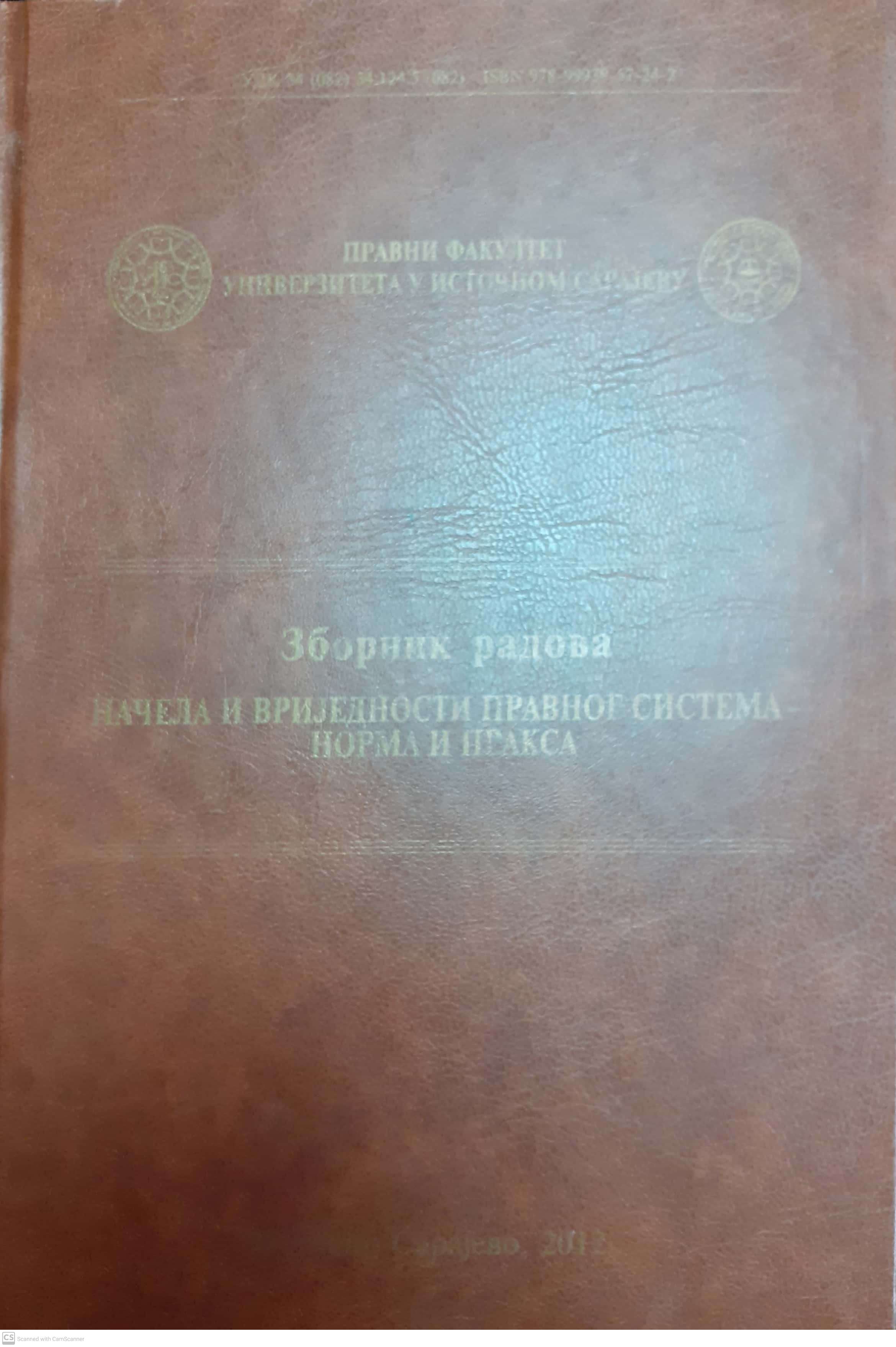Ustavne garancije načela nezavisnosti i samostalnosti sudske vlasti u ustavima bivših jugoslovenskih republika
Constitutional Guarantees of Principle of Judiciary Independence and Autonomy in Constitutions of Former Yugoslav Republics
Author(s): Danilo Ćupić
Subject(s): Law, Constitution, Jurisprudence, Constitutional Law
Published by: Правни факултет Универзитета у Источном Сарајеву
Keywords: Judical authority;Independence and autonomy of the judicary;Constitution;Constitutional norm;States of the former Yugoslav federation;
Summary/Abstract: Standardization of the legal position of the judicial power is a part of materiae constitutionem and is an integral part of most modern constitutions. In addition to the constitution, this matter is arranged with one or more systems of law which further elaborate constitutional principles. As a basic principle and postulate of functioning of the judicial power, it is bound to impose the principle of autonomy and independence of the judiciary, which essentially determines the position of the judiciary in the constitutional order. All other constitutional principles are, in a sense, complementary and have the task to further strengthen and reinforce this basic principle.Regulation of the principles of autonomy and independence of the judiciary in the new constitutional arrangements of the former Yugoslav republics indicates the intention of the Constitution makers to guarantee these two postulates as fundamental determinants of the organization and functioning of the judicial system. This is especially important taking into account the negative experience of the previous prescription and implementation of this principle and the need to satisfy the criteria set by international organizations, notably the Council of Europe and the European Union. However, the existing constitutional arrangements contain a number of inconsistencies, inadequacies and failures to comply with international standards, which is indicated in the paper, offering some appropriate alternative solutions.
- Page Range: 456-471
- Page Count: 16
- Publication Year: 2011
- Language: Serbian
- Content File-PDF

